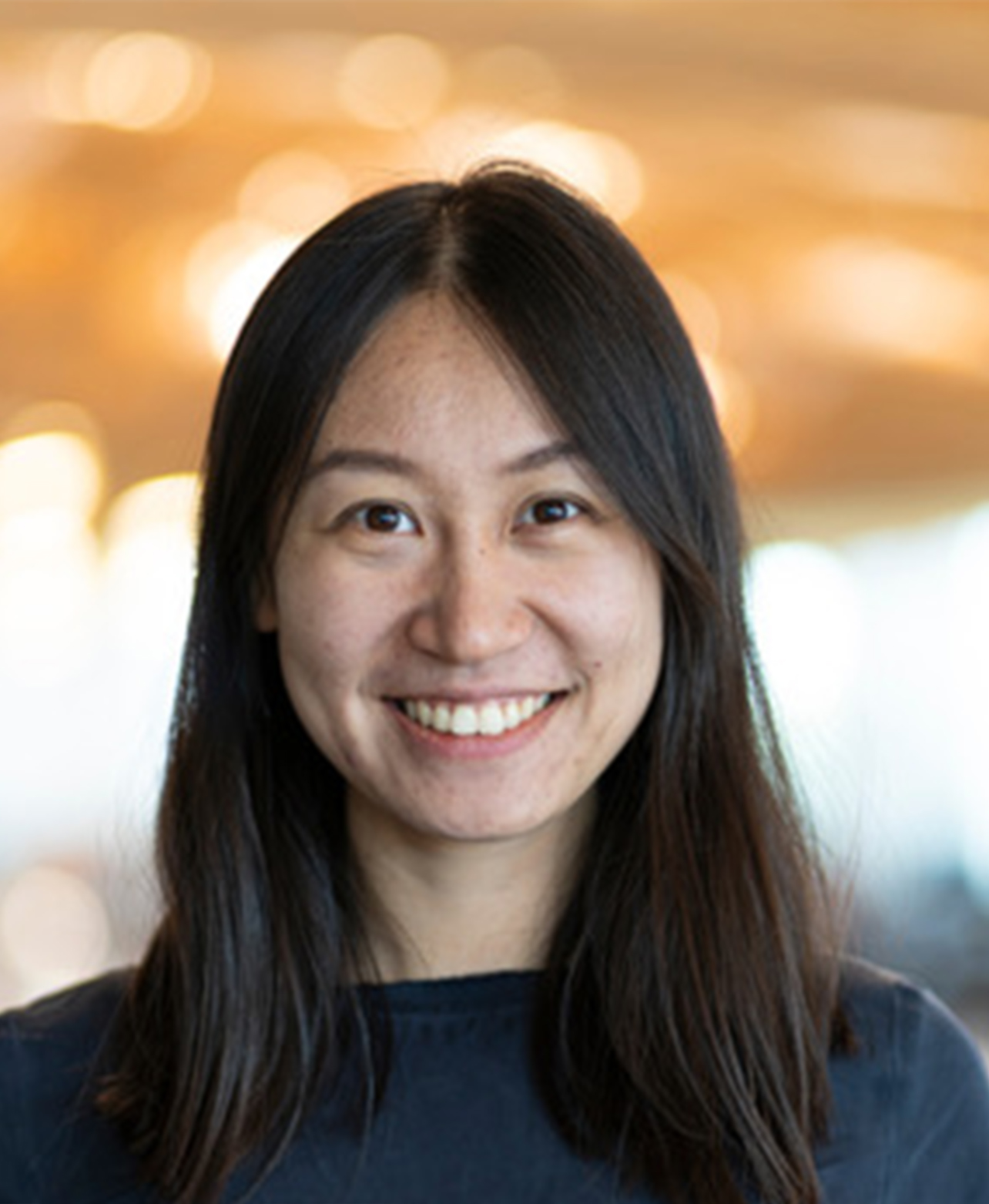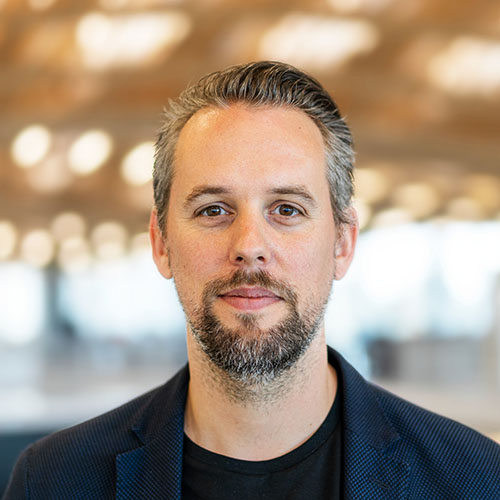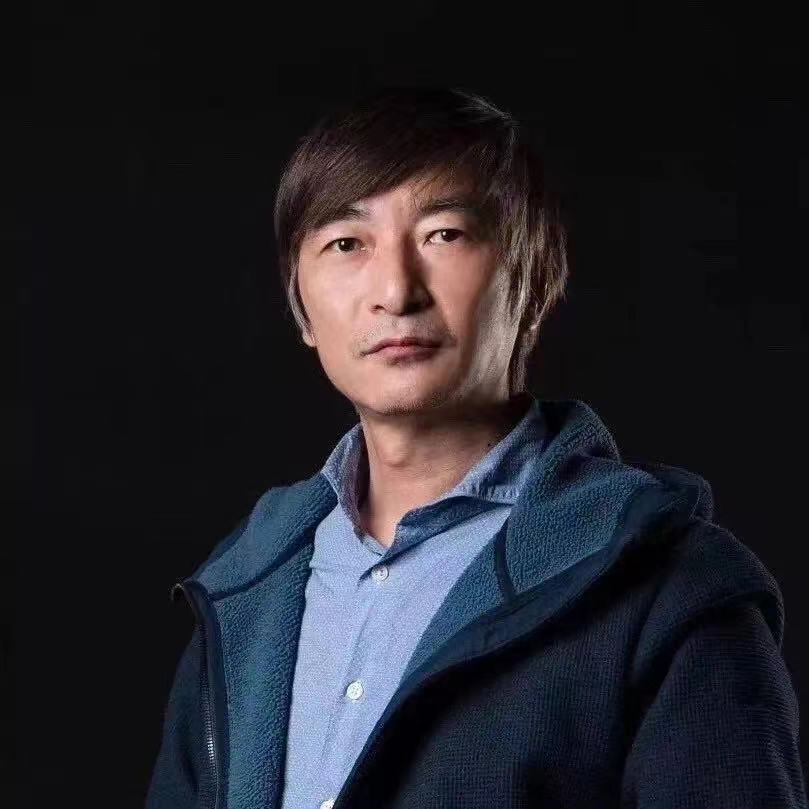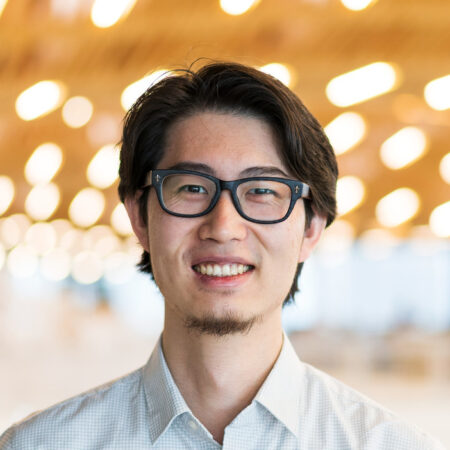Computational Design | Physical Workshop | English | Asia-Pacific
Description:
In this era of rapid digitalization in the AEC industry, how can cutting-edge computational design and digital fabrication tools enable us to build more efficiently harnessing the power of smart geometry? Moving towards a full, digital integration of all phases of a building’s life cycle, how will the next generation of architects, engineers and builders coordinate projects in order to achieve a more circular and sustainable economy? This workshop aims to provide a sneak peek into such a transformative future.
Funicular shells are structurally efficient and allow the activation of simple materials. The curvature of the shells provides strength through geometry rather than material capacity. While both the design and construction of such shells are highly challenging due to their geometrical complexity, the latest advances in computational tools offer opportunities for overcoming these challenges and creating innovative, sustainable structures.
During this workshop, we will work together to realize a full-scale demonstrator of a funicular masonry shell utilizing a flexible, knitted, stay-in-place formwork and thin tiles. The participants will learn how to use the open-source computational design framework COMPAS to develop algorithms for funicular form finding, materialization and fabrication. On top of that, we will also explore how to use COMPAS as a central hub to seamlessly connect to external computational platforms for tasks such as structural analysis and environmental impact assessment, with the outlook of using these results as real-time feedback to inform and automate our design decision-making process.
The workshop will be conducted in two parallel tracks: a hands-on component where participants will assist in the realization of a unique first-of-its-kind research prototype at full scale, and a digital component where they will be introduced to the rapidly expanding computational geometry ecosystem of COMPAS, along with several key plugins such as RhinoVault3 and FormFinder.
The workshop aims to immerse participants in the complete spectrum of design criteria formation, computational system architecturing, algorithm implementation, and digitally assisted real-world construction, fostering not only proficiency in a single structural design strategy, but also providing an experience of approaching digital fabrication from a holistic point of view.
Key Words:
flexible formwork,masonry funicular shell,COMPAS,full-scale prototype
Required Skills:
medium-level knowledge of 3D modeling in Rhino, basic knowledge of Python programming, knowledge in COMPAS is a plus
Required Software:
Rhino, Anaconda
Required Hardware:
None
Maximum number of participating students:
15
Funicular shells are structurally efficient and allow the activation of simple materials. The curvature of the shells provides strength through geometry rather than material capacity. While both the design and construction of such shells are highly challenging due to their geometrical complexity, the latest advances in computational tools offer opportunities for overcoming these challenges and creating innovative, sustainable structures.
During this workshop, we will work together to realize a full-scale demonstrator of a funicular masonry shell utilizing a flexible, knitted, stay-in-place formwork and thin tiles. The participants will learn how to use the open-source computational design framework COMPAS to develop algorithms for funicular form finding, materialization and fabrication. On top of that, we will also explore how to use COMPAS as a central hub to seamlessly connect to external computational platforms for tasks such as structural analysis and environmental impact assessment, with the outlook of using these results as real-time feedback to inform and automate our design decision-making process.
The workshop will be conducted in two parallel tracks: a hands-on component where participants will assist in the realization of a unique first-of-its-kind research prototype at full scale, and a digital component where they will be introduced to the rapidly expanding computational geometry ecosystem of COMPAS, along with several key plugins such as RhinoVault3 and FormFinder.
The workshop aims to immerse participants in the complete spectrum of design criteria formation, computational system architecturing, algorithm implementation, and digitally assisted real-world construction, fostering not only proficiency in a single structural design strategy, but also providing an experience of approaching digital fabrication from a holistic point of view.
Schedule:
Jun 25 - Jun 30
-
Day 1 / Jun 25
-
Day 2 / Jun 26
-
Day 3 / Jun 27
-
Day 4 / Jun 28
-
Day 5 / Jun 29
-
Day 6 / Jun 30
Instructors:
-
 Chaoyu Du ETH Zurich,Ph.D. candidateChaoyu Du is an architect and designer with interest in computational design, digital fabrication, and the history of 20th-century modern architecture and engineering. She completed her diploma in architecture at Tongji University (M.Arch), a dual Master's degree in Urban Design at Technical University of Berlin (M.Sc), MAS in architecture and digital fabrication and CAS in computer science at ETH. She joined Block research group in 2020, with a focus on computational geometry and digital fabrication fabrication of shell structure.
Chaoyu Du ETH Zurich,Ph.D. candidateChaoyu Du is an architect and designer with interest in computational design, digital fabrication, and the history of 20th-century modern architecture and engineering. She completed her diploma in architecture at Tongji University (M.Arch), a dual Master's degree in Urban Design at Technical University of Berlin (M.Sc), MAS in architecture and digital fabrication and CAS in computer science at ETH. She joined Block research group in 2020, with a focus on computational geometry and digital fabrication fabrication of shell structure. -
 Philippe Block ETH Zurich,Full Professor, Chair of Architecture and StructureDr. Philippe Block is a full professor at the Institute of Technology in Architecture at ETH Zurich, where he leads the Block Research Group (BRG) with Dr. Tom Van Mele. Philippe is also Director of the Swiss National Centre of Competence in Research (NCCR) in Digital Fabrication. He studied architecture and structural engineering at the Vrije Universiteit Brussel (VUB) in Belgium and at the Massachusetts Institute of Technology (MIT) in the US, where he earned his PhD in 2009. He applies research into practice on the design, engineering and construction of novel shell structures and is the recipient of numerous awards, including the Rössler Prize for most promising young professor from ETH Zürich (2018) and the Berlin Arts Prize 2018 for Baukunst.
Philippe Block ETH Zurich,Full Professor, Chair of Architecture and StructureDr. Philippe Block is a full professor at the Institute of Technology in Architecture at ETH Zurich, where he leads the Block Research Group (BRG) with Dr. Tom Van Mele. Philippe is also Director of the Swiss National Centre of Competence in Research (NCCR) in Digital Fabrication. He studied architecture and structural engineering at the Vrije Universiteit Brussel (VUB) in Belgium and at the Massachusetts Institute of Technology (MIT) in the US, where he earned his PhD in 2009. He applies research into practice on the design, engineering and construction of novel shell structures and is the recipient of numerous awards, including the Rössler Prize for most promising young professor from ETH Zürich (2018) and the Berlin Arts Prize 2018 for Baukunst. -
 Yige Liu Southeast University,Professor李飚教授,全国建筑数字技术教学工作委员会副主任,中国建筑学会计算性设计学术委员会副主任,中国建筑学会数字建造学术委员会理事,主要从事建筑设计数字技术相关理论方法研究与教学工作。李飚教授曾获瑞士联邦理工大学(ETH, Zurich)高级硕士学位、东南大学建筑学博士学位(2010年获全国优秀博士论文提名),并于2009-2013年在瑞士联邦理工大学攻读博士后。他曾在国内外各类学术期刊和会议发表论文40余篇,主持国家自然科学基金3项,参与重点基金1项,并主持科技部“十三五”国家重点研发计划子课题。 Li Biao serves as the deputy director of National Architectural Digital Technology Teaching Committee, the deputy director of Computational Design Committee of the Architectural Society of China, and the director of Digital Construction Committee of the Architectural Society of China. He is mostly engaged in the research and teaching of the theories and methods related to digital technologies for architectural design. Li Biao obtained an advanced master’s degree from Eidgenössische Technische Hochschule Zürich (ETH, Zurich), a doctor’s degree in architecture from Southeast University (nominated for National Excellent Doctoral Dissertation in 2010), and engaged in postdoctoral research in Eidgenössische Technische Hochschule Zürich (ETHZ) between 2009-2013. He has published more than 40 papers on various academic journals or at various conferences at home and abroad. He has led three national programs funded by NSFC, participated in one key funded program and led one sub-project of the national key R&D plan of the Ministry of Science and Technology during the 13th Five-year Plan Period. 李飚教授的研究方向为:建筑数字生成设计、“数字链”一体化数控建造等,尝试将算法生成设计方法转化到实际工程。他的作品——南京青奥会国际风情街幕墙设计曾获江苏省优秀工程设计二等奖和优秀勘察设计二等奖。自2015年至今,李飚教授完成了大量数字构筑物的编码与建造工作,如印象太湖石、龙舟记忆、空影阑珊、汤山矿坑公园步行桥、成都安仁南岸美村“林·盘”设计与建造等。同时,他也在积极探索深度学习与大数据在城市设计中的运用。 In terms of achievements, owing to his attempts on converting the algorithm generation design methods into the physical projects, Li Biao was entrusted to develop the design for the curtain wall of the international street for Nanjing Youth Olympic Games, which, in 2016, won the second prize for excellent engineering design and the second prize for excellent survey design of Jiangsu Province. Since 2015, he has completed the coding and construction of a number of digital structures, including the design and construction of Impression of Taihu Stone, Memory of Dragon Boat, Empty Shadow, pedestrian bridge in Tangshan Quarry Park, OCT Southbank Village “Lin Pan” in Anren, Chengdu, etc.
Yige Liu Southeast University,Professor李飚教授,全国建筑数字技术教学工作委员会副主任,中国建筑学会计算性设计学术委员会副主任,中国建筑学会数字建造学术委员会理事,主要从事建筑设计数字技术相关理论方法研究与教学工作。李飚教授曾获瑞士联邦理工大学(ETH, Zurich)高级硕士学位、东南大学建筑学博士学位(2010年获全国优秀博士论文提名),并于2009-2013年在瑞士联邦理工大学攻读博士后。他曾在国内外各类学术期刊和会议发表论文40余篇,主持国家自然科学基金3项,参与重点基金1项,并主持科技部“十三五”国家重点研发计划子课题。 Li Biao serves as the deputy director of National Architectural Digital Technology Teaching Committee, the deputy director of Computational Design Committee of the Architectural Society of China, and the director of Digital Construction Committee of the Architectural Society of China. He is mostly engaged in the research and teaching of the theories and methods related to digital technologies for architectural design. Li Biao obtained an advanced master’s degree from Eidgenössische Technische Hochschule Zürich (ETH, Zurich), a doctor’s degree in architecture from Southeast University (nominated for National Excellent Doctoral Dissertation in 2010), and engaged in postdoctoral research in Eidgenössische Technische Hochschule Zürich (ETHZ) between 2009-2013. He has published more than 40 papers on various academic journals or at various conferences at home and abroad. He has led three national programs funded by NSFC, participated in one key funded program and led one sub-project of the national key R&D plan of the Ministry of Science and Technology during the 13th Five-year Plan Period. 李飚教授的研究方向为:建筑数字生成设计、“数字链”一体化数控建造等,尝试将算法生成设计方法转化到实际工程。他的作品——南京青奥会国际风情街幕墙设计曾获江苏省优秀工程设计二等奖和优秀勘察设计二等奖。自2015年至今,李飚教授完成了大量数字构筑物的编码与建造工作,如印象太湖石、龙舟记忆、空影阑珊、汤山矿坑公园步行桥、成都安仁南岸美村“林·盘”设计与建造等。同时,他也在积极探索深度学习与大数据在城市设计中的运用。 In terms of achievements, owing to his attempts on converting the algorithm generation design methods into the physical projects, Li Biao was entrusted to develop the design for the curtain wall of the international street for Nanjing Youth Olympic Games, which, in 2016, won the second prize for excellent engineering design and the second prize for excellent survey design of Jiangsu Province. Since 2015, he has completed the coding and construction of a number of digital structures, including the design and construction of Impression of Taihu Stone, Memory of Dragon Boat, Empty Shadow, pedestrian bridge in Tangshan Quarry Park, OCT Southbank Village “Lin Pan” in Anren, Chengdu, etc. -
 Li Chen ETH Zurich,PhDLi Chen is a PhD Researcher at Block Research Group, ETH Zurich. His research focuses on universal data model and software architecture for AEC (Architecture, Engineering and Construction) industry and for general-purpose computational geometry applications. His educational background was in Architecture, Computer Science and Robotics. After graduated from Architectural Association School of Architecture in London, UK, he worked as Principal Computational Designer at Studio Bitonti in New York, United States, at the same time as Generative AI Consultant at LexSet.ai, also in New York. During this period, he was involved in computational design and AI related projects with numerous industry leading clients such as Google, Intel, Adidas and Ikea. Since 2019 until 2022, he worked as Software Engineer at Block Research Group, affiliated with NCCR Digital Fabrication. He is currently on the Board of Directors at COMPAS Association, he is also the founder of software consulting company Aesynthetic GmbH.
Li Chen ETH Zurich,PhDLi Chen is a PhD Researcher at Block Research Group, ETH Zurich. His research focuses on universal data model and software architecture for AEC (Architecture, Engineering and Construction) industry and for general-purpose computational geometry applications. His educational background was in Architecture, Computer Science and Robotics. After graduated from Architectural Association School of Architecture in London, UK, he worked as Principal Computational Designer at Studio Bitonti in New York, United States, at the same time as Generative AI Consultant at LexSet.ai, also in New York. During this period, he was involved in computational design and AI related projects with numerous industry leading clients such as Google, Intel, Adidas and Ikea. Since 2019 until 2022, he worked as Software Engineer at Block Research Group, affiliated with NCCR Digital Fabrication. He is currently on the Board of Directors at COMPAS Association, he is also the founder of software consulting company Aesynthetic GmbH.